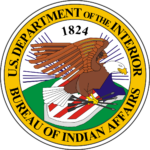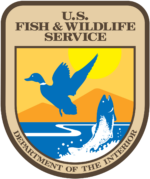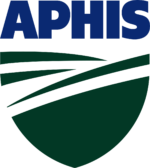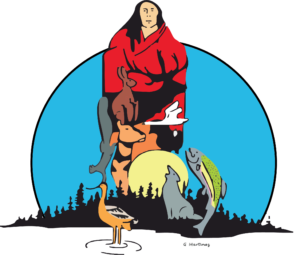Search / Filter Grants
Grant Status
Funding Agencies
Funding Types
Eligible Entities
Conservation Law Enforcement Officer Funding (BIA)
Due Date: January 16, 2024 | Award: $47,000
 The Branch of Fisheries, Wildlife and Recreation (BFWR) provides competitive funding to federally-recognized Tribes to hire conservation law enforcement officers (CLEOs) to protect Tribal natural resources.
The Branch of Fisheries, Wildlife and Recreation (BFWR) provides competitive funding to federally-recognized Tribes to hire conservation law enforcement officers (CLEOs) to protect Tribal natural resources.
Network for Landscape Conservation: Catalyst Fund
Due Date: May 3, 2024 | Award: $
 The Catalyst Fund strives to accelerate the pace and practice of collaborative landscape conservation and stewardship across the United States by investing in Landscape Partnerships. The Fund couples financial support (through a competitive grant program) with capacity[1]building support (through in-depth Peer Learning) to catalyze Partnership efforts to achieve long-term conservation and stewardship goals. A portion of the Fund is reserved specifically to advance Tribal-led Partnerships. MATCH IS WAIVED FOR TRIBAL-LED PARTNERSHIPS!
The Catalyst Fund strives to accelerate the pace and practice of collaborative landscape conservation and stewardship across the United States by investing in Landscape Partnerships. The Fund couples financial support (through a competitive grant program) with capacity[1]building support (through in-depth Peer Learning) to catalyze Partnership efforts to achieve long-term conservation and stewardship goals. A portion of the Fund is reserved specifically to advance Tribal-led Partnerships. MATCH IS WAIVED FOR TRIBAL-LED PARTNERSHIPS!
White-nose Syndrome Grants to States and Tribes (USFWS)
Due Date: May 8, 2024 | Award: $75,000
 White-nose syndrome (WNS) is a disease of hibernating bats caused by the invasive fungus Pseudogymnoascus destructans (Pd). WNS is confirmed in 12 bat species in North America, including three that are federally listed as threatened or endangered and one that is proposed to be listed. The U.S. Fish and Wildlife Service (Service) is offering financial assistance to wildlife and natural resource management agencies and departments of states, the District of Columbia, and federally-recognized Native American Tribes for efforts related to the management of WNS. The goal of this funding opportunity is to help our State and Tribal partners fulfill information needs, implement management actions for WNS and susceptible bat species, and actively engage in the National Response to WNS. Supported activities will include monitoring bat populations, implementing conservation actions for bats, supporting scientific information gathering, training personnel, managing WNS and the causative fungus, and maintaining expertise in bat conservation and management.
White-nose syndrome (WNS) is a disease of hibernating bats caused by the invasive fungus Pseudogymnoascus destructans (Pd). WNS is confirmed in 12 bat species in North America, including three that are federally listed as threatened or endangered and one that is proposed to be listed. The U.S. Fish and Wildlife Service (Service) is offering financial assistance to wildlife and natural resource management agencies and departments of states, the District of Columbia, and federally-recognized Native American Tribes for efforts related to the management of WNS. The goal of this funding opportunity is to help our State and Tribal partners fulfill information needs, implement management actions for WNS and susceptible bat species, and actively engage in the National Response to WNS. Supported activities will include monitoring bat populations, implementing conservation actions for bats, supporting scientific information gathering, training personnel, managing WNS and the causative fungus, and maintaining expertise in bat conservation and management.
Advancing Tribal Nature-Based Solution Grant (First Nations Development Institute)
Due Date: May 22, 2024 | Award: $200,000

Tribes and Native communities are on the front lines of climate change, experiencing extreme weather, rising sea levels, extended drought, warming temperatures, and melting permafrost… To support climate action that addresses adaptation and disaster preparation, First Nations Development Institute established the “Advancing Tribal Nature-Based Solutions” project – designed to provide tribes and Native nonprofits with resources to support climate action that addresses adaptation and disaster preparation (e.g., wildfires, flooding, drought) through the application of nature-based solutions based on Native knowledge.
National Environmental Information Exchange Network Grant Program
Due Date: May 23, 2024 | Award: $500,000

The EPA Exchange Network Grant Program is soliciting project applications to support the Environmental Information Exchange Network (EN) to:
-
- Facilitate sharing of environmental data, especially through shared and reusable services.
-
- Reduce burden and avoid costs for co-regulators and the regulated community.
-
- Streamline data collection and exchanges to improve its timeliness for decision making.
-
- Increase the quality and access to environmental data through discovery, publishing, outbound and analytical services so it is more useful to environmental managers.
-
- Increase data and IT management capabilities needed to fully participate in the EN.
Invasive Species Eradication Funding Opportunity (USFWS)
Due Date: May 27, 2024 | Award: $1,000,000
 USFWS invites proposals to support the eradication of a newly introduced or established species in terrestrial or aquatic habitats of the United States, including the U.S. territories (aquatic habitats include freshwater, wetland, riparian, estuarian, and marine). While preference will be given to proposals that result in eradication of invasive species, research proposals that advance research that increases the effectiveness and availability of eradication tools will be considered
USFWS invites proposals to support the eradication of a newly introduced or established species in terrestrial or aquatic habitats of the United States, including the U.S. territories (aquatic habitats include freshwater, wetland, riparian, estuarian, and marine). While preference will be given to proposals that result in eradication of invasive species, research proposals that advance research that increases the effectiveness and availability of eradication tools will be considered
Tribal Nations Wild Cervid CWD Funding Opportunity
Due Date: June 10, 2024 | Award: $100,000
Federally recognized Native American Tribal governments and organizations are eligible to submit funding proposals to control and prevent CWD in farmed and wild cervids through the development and/or implementation of CWD surveillance, testing, management, and response activities including the indemnification of farmed cervids. There is a Tribal set-aside of $500,000. Note: there is another opportunity open to more applicants – Tribes should apply for both.
Wild Cervid CWD Funding Opportunity (National)
Due Date: June 10, 2024 | Award: $250,000
 APHIS anticipates awarding around $5.5 million to control and prevent chronic wasting disease (CWD) in wild cervids. Funded projects will allow recipients to further develop and carry out CWD management and response activities in line with the following priorities:
APHIS anticipates awarding around $5.5 million to control and prevent chronic wasting disease (CWD) in wild cervids. Funded projects will allow recipients to further develop and carry out CWD management and response activities in line with the following priorities:
- Improving CWD management of affected wild cervid populations
- Improving CWD management of affected areas or premises
- Conducting additional research on amplification assays and other new test methods
- Conduct research on developing and/or applying predictive genetics for wild cervids
- Developing and/or delivering educational outreach materials or programs
Tribal Wildlife Grants (USFWS)
Due Date: June 21, 2024 | Award: $200,000
 The TWG Program provides opportunities for federally recognized Tribes to engage in fish and wildlife conservation efforts on their lands, many of which are located adjacent to DOI-managed lands. Many of the TWG Program-funded project activities increase fish and wildlife populations, allowing for hunting and fishing opportunities on and off Tribal lands. Additionally, the TWG Program funds project activities that align and assist the Service with Endangered Species Act (ESA) activities supporting downlisting, delisting, and preventing new species listings under the ESA.
The TWG Program provides opportunities for federally recognized Tribes to engage in fish and wildlife conservation efforts on their lands, many of which are located adjacent to DOI-managed lands. Many of the TWG Program-funded project activities increase fish and wildlife populations, allowing for hunting and fishing opportunities on and off Tribal lands. Additionally, the TWG Program funds project activities that align and assist the Service with Endangered Species Act (ESA) activities supporting downlisting, delisting, and preventing new species listings under the ESA.
Wildlife Crossings Pilot Program (WCPP)
Due Date: September 4, 2024 | Award: $

The Wildlife Crossings Pilot Program (WCPP) is a competitive grant program with the goal of reducing Wildlife Vehicle Collisions (WVCs) while improving habitat connectivity for terrestrial and aquatic species. $145 million is available for the combined application years of FY2024-FY2025. Applications are due Sept 4, 2024.
